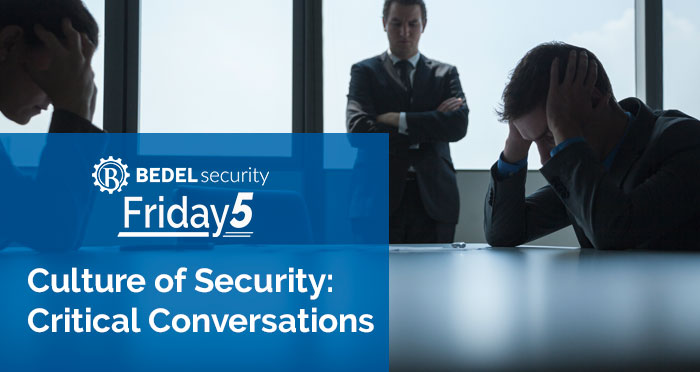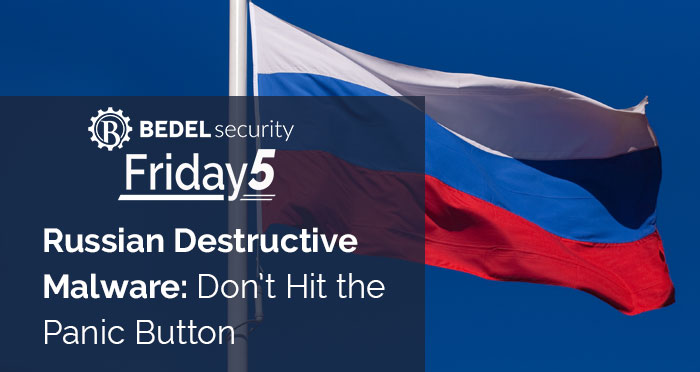Change, Conflict and Culture
We have many institutions either going through or coming out of a large amount of change. It seems like there’s always some new guidance, product, or...


Have you ever been in an organization where everyone can see the cause of an issue, but no one has the guts to say it out loud?
Of course, we all have.
It’s the type of organization that can harbor those awkward “the king has no clothes” moments - but unfortunately, in a corporate setting, we don’t have the luxury of children blurting out whatever comes to mind - so these things often never get addressed.
One of our values at Bedel Security is “Candid Debate”. It’s the idea that we are our best when we allow conflict to occur, and we encourage the discussion and resolution of that conflict.
We use that value internally for growing and managing our company. But we also use that with our customer relationships. In fact, when it’s our customers, we use the rallying cry: “tell them what they need to hear, not what they want to hear”. And that approach has worked very well for us.
Many organizations don’t allow critical conversations to happen because conflict is considered bad. But lack of conflict is actually MUCH worse. It causes that tension that you can just feel in the air and ultimately leads to passive-aggressive interactions and political maneuvers.
It’s simple, but not easy. This type of approach has to be embedded in the culture and if it’s not, it can be very hard to establish. This is true for the organization as a whole, but also especially the information security program. You have to set the culture for security and it starts with encouraging open dialogue and debate.
We’ve seen this (or a lack thereof) in our years of providing virtual CISO services.
This is all happening in fear of conflict, fear of looking bad, fear of the truth. But it’s not your people’s fault - they are in a culture that doesn't allow vulnerability - it doesn’t allow people to say: “I don’t know” or “I made a mistake”.
Without that culture, the organization severely limits itself:
Wouldn’t you rather know that the patching process is unsustainable than find out the hard way? Wouldn’t you rather see a “red” on a backup report today than find out after a ransomware attack tomorrow? Wouldn’t you rather hear an opposing idea on how to secure your environment than just stay with the “way you’ve always done it”?
If your people don’t feel comfortable identifying issues and discussing disagreements these problems may never come to light until it’s too late. And in the information security world, that comes at a big cost.
So, here are some keys to building that culture that shares freely and debates openly:
Finally, understand that this takes time and practice. Culture can be one of the hardest things to change in an organization. To make this work, you need to be committed, but patient.
If you have any questions on how to implement these ideas among your team, feel free to reach out to me directly at chris@bedelsecurity.com
For more information on the subject, check out these books that I’ve read numerous times:
5 Reasons Information Security is a Team Sport
https://www.bedelsecurity.com/blog/5-reasons-information-security-is-a-team-sport
Culture Counts
https://www.bedelsecurity.com/blog/culture-counts

We have many institutions either going through or coming out of a large amount of change. It seems like there’s always some new guidance, product, or...

Everyone is on high alert right now because of Russian ransomware attacks as a part of the conflict in Ukraine.

This article is the second of a 2-part series on building an effective outsourcing strategy for the various components of IT for financial...